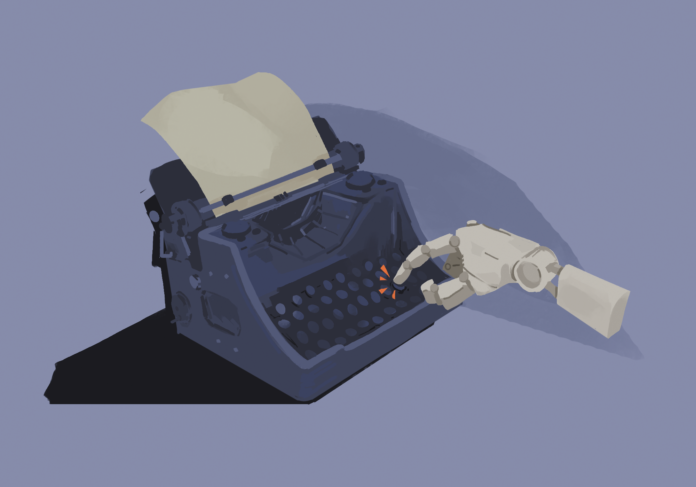The ethics of using AI in writing
By Ellie Noh — eenoh@ucdavis.edu
Since 2020, Artificial Intelligence (AI) has rapidly grown as a form of technology, making headlines due to its ability to complete tasks faster than ever. This increase in AI development occurred throughout the pandemic, largely driven by the challenges created with working remotely and our hindered ability to have human-to-human interactions. Now, with more AI platforms like ChatGPT, we are able to generate ideas just from a click of a button.
In a world with increasingly rampant use of technology and the rising presence of generative AI, the real question is this: When does it become ethical to use Artificial Intelligence in journalistic writing?
Journalism refers to the type of writing which covers news by collecting information from various sources, such as an interview and creating reports. Without journalism, it would be difficult to stay up to date on current news, and we might even be prone to danger if we aren’t aware about what is happening in the world around us.
If you’ve ever written an essay, column or article before, you might be aware of the time it takes in order to go through multiple drafts, along with the never-ending editing process to produce your best work possible. With the recent developments in AI, many writers have learned to take shortcuts — they have allowed AI to think for them, sitting back and watching ChatGPT come up with words and phrases they may not have ever thought of.
In any writing, and in journalism in particular, AI has the potential to come up with auto-generated articles, freeing up journalists to spend their time focusing on other, more pressing issues. While this strategy can be used to help with timeliness for publications, I believe that there should be a limit on what it can be used for. AI should be a tool, not a replacement for human-discovered truth.
Central to the art of journalism is the notion of seeking out sources as a reporter and in this way creating human-to-human connections when covering a story. Using AI, rather than taking the time to put spoken words onto paper, eliminates the presence of human thoughts and emotions in journalistic writing.
In my past journalistic experiences, I’ve had the opportunity to schedule interviews with various changemakers to cover their journeys in making an impact in their community. From this, I recognized the importance of creating that human-to-human connection, which establishes a sense of understanding between myself and my conversation partner. Through face-to-face communication, we connected through our shared journeys. In many ways, AI-generated articles lack this crucial “human touch.”
Additionally, because AI is still developing to this day, it often has issues with credibility, making it an unreliable news source for people to go to. 1,121 “Unreliable AI-Generated News” websites across 16 languages were discovered by NewsGuard. With this in mind, some AI functions have yet to become a solid source of information for us, meaning that we should refrain from using AI in order to prevent the possibility of spreading misinformation.
However, there are a few ways AI can be ethically used to prevent human errors. One way includes checking articles for grammar and any spelling discrepancies that are missed by the eye of writers and editors. Additionally, if efficiency is fundamental, the best way to communicate an original story while improving the usage of time is to generate story ideas using AI. If you choose this option as a writer, it is crucial to keep in mind that this generated list is not able to fully encapsulate your personal experiences and inspirations of the article.
AI can also be used as a search engine in order to quickly gather baseline research needed for an article. However, this has to be used carefully, especially with the unreliable features of AI that necessitates us to manually cross-check its results for false information.
In the end, any writing that you create should stem from your own ideas, not from computer generation. Will the average reader be able to tell whether it was written by AI? Probably not. Even so, in every decision we make we must think and consider our own morals and what we see as ethical — the decision is ultimately ours. Writing is central to our academic and professional lives and should not be a missed opportunity for human creativity.
Written by: Ellie Noh — eenoh@ucdavis.edu
Disclaimer: The views and opinions expressed by individual columnists belong to the columnists alone and do not necessarily indicate the views and opinions held by The California Aggie.









